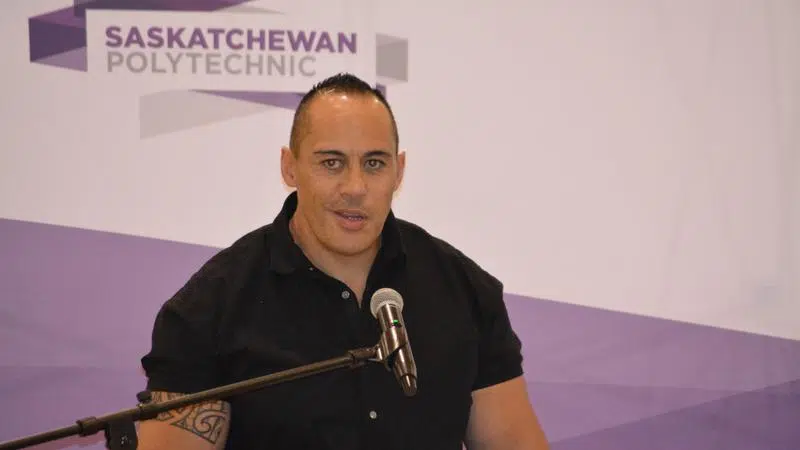
New Zealand cop talks Indigenous policing and justice
Correctional and justice studies students filled the gym at Saskatchewan Polytechnic on Monday to gain some insight on their field from the other side of the world.
New Zealand Police Sergeant Simon Kairau is in Saskatchewan as part of a research scholarship with the New Zealand Police. He’s visited Regina, Saskatoon and File Hills.
At his latest stop in Prince Albert, he spoke to the crowd about his country’s history of colonization and programs he’s implemented to combat the overrepresentation of Indigenous people in the justice system.
Erin Parenteau, Indigenous Resource Officer with Prince Albert Police Victims Services, was in the crowd on Monday.


